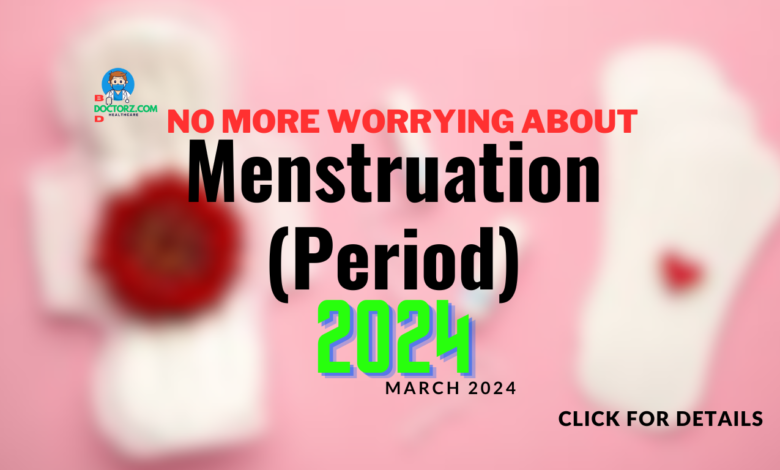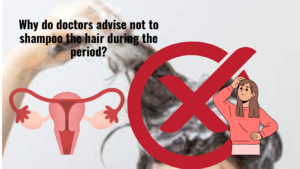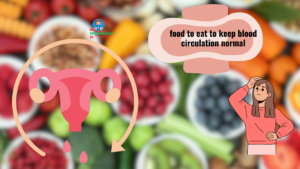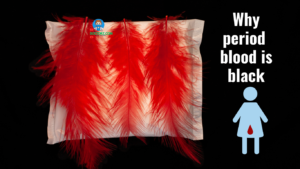What causes periods to start and stop?
All menstrual (period) related solutions

Below are solutions and information for all menstrual-related problems// What causes periods to start and stop?
What causes periods to start and stop?
What causes periods to start and stop? The menstrual cycle, which is responsible for the start and stop of periods, is regulated by complex interactions between hormones in the body. The menstrual cycle, which includes the start and stop of periods, is controlled by a complex interplay of hormones in the body. Here’s a little brief overview of the process:
Menstrual Cycle Phases:
The menstrual cycle typically lasts around 28 days, although it can vary from person to person. The menstrual cycle is typically divided into four phases: menstruation (bleeding), the follicular phase, ovulation, and the luteal phase. This is when bleeding occurs, usually lasting around 3-7 days.
Menstruation (Period):
This phase marks the shedding of the uterine lining that has built up in preparation for a potential pregnancy. If pregnancy doesn’t occur, the body no longer needs this lining, and it is shed through the vagina as menstrual blood.
Follicular Phase:
This stage lasts until ovulation and starts on the first day of menstruation. During this time, follicle-stimulating hormone (FSH) stimulates the ovaries to produce follicles, each containing an egg. These follicles produce estrogen, which stimulates the thickening of the uterine lining in preparation for the potential implantation of a fertilized egg.
Ovulation:
Around the middle of the menstrual cycle, typically around day 14 in a 28-day cycle, a surge in luteinizing hormone (LH) triggers the release of a mature egg from one of the ovaries. This is ovulation. Around the middle of the cycle, usually around day 14 in a 28-day cycle, ovulation occurs. This is the moment when an ovary releases an egg.
Luteal Phase:
After ovulation, the ruptured follicle transforms into a structure called the corpus luteum, which secretes progesterone. Progesterone helps maintain the thickened uterine lining in preparation for pregnancy. If fertilization doesn’t occur, the corpus luteum breaks down, progesterone levels drop, and the uterine lining begins to shed, marking the start of a new menstrual cycle. After ovulation, the empty follicle transforms into a structure called the corpus luteum, which produces hormones to prepare the uterus for potential pregnancy.
So, periods start when the uterine lining sheds during menstruation and stop when the shedding is complete. The hormonal changes throughout the menstrual cycle regulate this process, preparing the body for potential pregnancy each month.
What causes periods to start and stop?
Estrogen:
This hormone rises during the follicular phase, stimulating the thickening of the uterine lining.
Progesterone:
After ovulation, progesterone levels increase, further thickening the uterine lining in preparation for the implantation of a fertilized egg.
Hormonal Decline:
If fertilization does not occur, hormone levels drop, causing the uterine lining to shed, leading to menstruation.
Control by the Hypothalamus and Pituitary Gland:
The menstrual cycle is regulated by the hypothalamus and pituitary gland in the brain, which produce hormones that signal the ovaries to release estrogen and progesterone.
Menstrual Flow: Menstrual bleeding is the result of this shedding. Menstrual flow occurs when the thickened uterine lining, which has not been implanted with a fertilized egg, sheds.
Cessation of Menstruation:
The menstrual cycle stops during pregnancy and breastfeeding due to hormonal changes that prevent ovulation and menstruation. Additionally, menopause marks the cessation of menstruation, typically occurring around the age of 45-55, as hormone levels decline permanently.
Overall, the menstrual cycle is a highly coordinated process involving hormonal fluctuations and interactions between the reproductive organs and the brain.
What causes periods to start and stop?
What to do if the bleeding is light during the period

If you’re experiencing light bleeding during your period, there are a few things you can do:
Pay attention to how your body is responding. Light bleeding can sometimes be normal for some individuals, especially at the beginning or end of your period.
Stay Hydrated: Drinking plenty of water can help alleviate some discomfort associated with menstruation and can also help regulate your flow.
Manage Pain:
If you’re experiencing any discomfort or pain, consider using over-the-counter pain relievers like ibuprofen or acetaminophen as directed.
Use Appropriate Products:
Even with light bleeding, it’s important to use appropriate menstrual products to avoid leaks. You might opt for lighter absorbency pads or tampons, or consider menstrual cups or period panties.
Maintain Hygiene:
Change your menstrual products regularly to maintain hygiene and prevent infections.
What causes periods to start and stop?
Consider Causes:
Light bleeding could be due to a variety of factors, such as hormonal changes, stress, diet, exercise, or certain medications. If this is a sudden change or if it persists, consider consulting with a healthcare provider to rule out any underlying issues.
Rest and Relaxation:
Sometimes, light bleeding can be a sign that your body needs rest. Take it easy, practice relaxation techniques, and ensure you’re getting enough sleep.
Nutrition:
Eating a balanced diet rich in iron and other nutrients can help support your body during menstruation, even if the bleeding is light.
Track Your Cycle:
Keeping track of your menstrual cycle can help you identify any patterns or changes in your bleeding over time. This information can be valuable when discussing your health with a healthcare provider.
If you’re ever concerned about your menstrual cycle or experiencing unusual symptoms, it’s always a good idea to consult with a healthcare professional for personalized advice and guidance.
How to live a healthy life 2024
Benefits of having regular intercourse
What to do in high pressure and low pressure
ঢাকা শিশু হাসপাতাল ডাক্তারের তালিকা
৭ দিনে ছেলেদের চুল পড়া বন্ধ ও নতুন চুল গজনোর নতুন উপায়
হার্ট অ্যাটাকের লক্ষণ, প্রতিকার ও জটিলতা
Menstruation is less than normal? What causes this problem?

Having lighter than normal menstruation, also known as hypomenorrhea, can be caused by various factors. Some potential causes include:
Hormonal Imbalance:
Fluctuations in hormone levels, particularly estrogen and progesterone, can affect the thickness of the uterine lining and consequently the amount of menstrual bleeding.
What causes periods to start and stop?
Stress:
High levels of stress can disrupt the hormonal balance in the body, leading to changes in menstruation. Stress can affect the functioning of the hypothalamus, which regulates hormones involved in the menstrual cycle.
Thyroid Disorders:
Thyroid conditions such as hypothyroidism or hyperthyroidism can impact menstrual regularity and flow.
Polycystic Ovary Syndrome (PCOS):
PCOS is a hormonal disorder that can cause irregular periods, including lighter than normal menstruation, due to hormonal imbalances and the formation of ovarian cysts.
Extreme Exercise:
Intense physical activity or excessive exercise can sometimes lead to lighter periods or even amenorrhea (absence of menstruation) due to changes in hormone levels and energy availability.
Low Body Weight or Eating Disorders:
Being underweight or having an eating disorder can disrupt hormone production and lead to lighter periods or irregular menstruation.
Certain Medications:
Some medications, such as hormonal contraceptives, can cause changes in menstrual flow. Additionally, certain medications used to treat other conditions may have side effects that affect menstruation.
Uterine or Ovarian Issues:
Structural abnormalities or conditions affecting the uterus or ovaries, such as fibroids or ovarian cysts, can sometimes lead to changes in menstrual flow. What causes periods to start and stop?
As women approach menopause, hormonal changes can cause irregular periods and lighter bleeding before menstruation ceases altogether.
If you’re experiencing lighter than normal menstruation or any other irregularities with your menstrual cycle, it’s important to consult with a healthcare provider. They can help determine the underlying cause and provide appropriate treatment or management options.
Why do doctors advise not to shampoo the hair during the period?

There is no medical reason why doctors would advise against shampooing the hair during menstruation. Shampooing hair is a normal hygiene practice and does not pose any specific risks during menstruation.
It’s possible that this advice might stem from cultural beliefs or myths rather than medical science. In some cultures or traditions, there are superstitions or taboos associated with certain activities during menstruation, including washing hair. However, from a medical standpoint, there is no evidence to support the idea that shampooing hair during menstruation is harmful or problematic.
What causes periods to start and stop?
Maintaining good hygiene, including regular bathing or showering and washing the hair as needed, is important for overall health and well-being, regardless of menstrual status. If you have specific concerns or questions about hygiene practices during menstruation, it’s always best to consult with a healthcare provider for personalized advice.
What kind of food to eat to keep blood circulation normal during menstruation

Maintaining a healthy diet during menstruation can help support normal blood circulation and overall well-being. Here are some foods that can be beneficial:
Iron-Rich Foods:
Menstruation can lead to some loss of iron due to blood loss. Consuming iron-rich foods can help replenish iron levels. Good sources include lean meats (such as beef and poultry), fish, tofu, beans, lentils, fortified cereals, spinach, and other leafy greens.
Vitamin C-Rich Foods:
Vitamin C helps enhance the absorption of iron from plant-based sources. Include foods like citrus fruits (oranges, lemons, grapefruits), strawberries, bell peppers, tomatoes, and broccoli in your diet.
Foods High in Vitamin B12:
Vitamin B12 is important for red blood cell production and can be found in animal products such as meat, fish, poultry, eggs, and dairy products.
Healthy Fats:
Omega-3 fatty acids, found in fatty fish (salmon, mackerel, sardines), flaxseeds, chia seeds, and walnuts, can help reduce inflammation and support cardiovascular health.
Whole Grains:
Whole grains like oats, quinoa, brown rice, and whole wheat bread provide fiber, B vitamins, and minerals, which are important for overall health and energy levels.
Dark Chocolate:
Dark chocolate with a high cocoa content (70% or more) contains flavonoids that may help improve blood flow and circulation.
What causes periods to start and stop?
Almonds, pumpkin seeds, and sunflower seeds are rich in iron, magnesium, and other nutrients that support blood circulation and energy levels.
Leafy Greens:
Spinach, kale, and other leafy greens are rich in iron, folate, and vitamin K, which are important for blood health and circulation.
Hydrating Foods:
Staying hydrated is important during menstruation. Include hydrating foods such as water-rich fruits (cucumbers, watermelon, oranges) and vegetables (celery, lettuce, zucchini) in your diet.
Herbal Teas:
Herbal teas like ginger tea, chamomile tea, and raspberry leaf tea may help alleviate menstrual discomfort and promote relaxation.
It’s important to maintain a balanced diet that includes a variety of nutrient-rich foods to support overall health and well-being during menstruation. If you have specific dietary concerns or medical conditions, consult with a healthcare provider or registered dietitian for personalized advice.
Why is period blood black?

blood is
black
Period blood can appear black or very dark brown for several reasons:
Old Blood:
Blood that has been in the uterus for a longer period of time before being expelled may appear darker in color. When menstrual blood takes longer to exit the body, it can oxidize, causing it to darken.
Delayed Flow:
Sometimes, menstrual blood flow can be slow or intermittent, allowing blood to stay in the uterus longer and darken before being discharged.
Hormonal Factors:
Hormonal imbalances or changes can affect the consistency and color of menstrual blood. Certain hormonal conditions, such as polycystic ovary syndrome (PCOS) or thyroid disorders, may influence the appearance of menstrual blood.
What causes periods to start and stop?
Endometrial Shedding:
The shedding of the uterine lining during menstruation can sometimes result in darker blood. This can occur when the endometrial tissue breaks down and mixes with menstrual blood.
Uterine Conditions:
Conditions affecting the uterus, such as fibroids or adenomyosis, can cause changes in menstrual blood color and consistency.
Infections or Health Issues:
In rare cases, dark-colored menstrual blood may be a sign of an underlying health issue or infection. It’s important to pay attention to any changes in menstrual blood color or consistency and consult a healthcare provider if you have concerns.
While occasional dark-colored menstrual blood is usually not cause for alarm, persistent changes or unusual symptoms should be evaluated by a healthcare professional to rule out any underlying issues.





